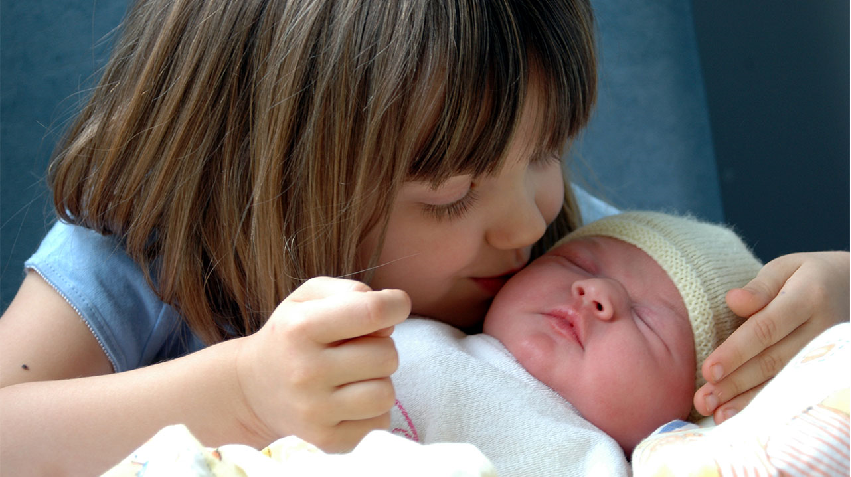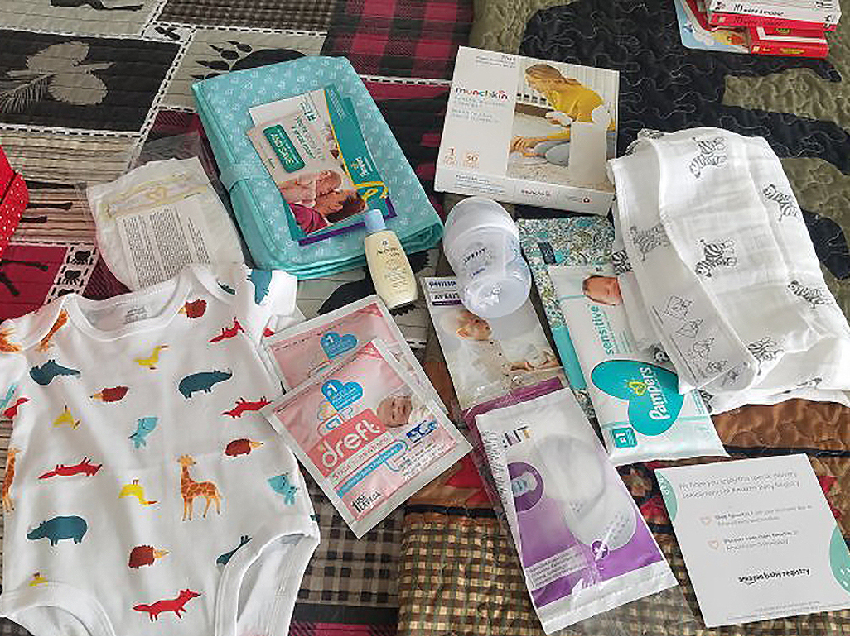
30 Nov Newborn baby care tips for her well-being
It’s time to bring your baby home! Surely you have many care questions, however, in this blog, we give you some newborn baby care tips for her well-being.
The first few days with your baby can go by in the blink of an eye. To better help you in this new stage, below, we provide you with some tips and advice that will help you take care of your well-being and health.
Prepare A “Welcome Kit”

When you return from the hospital with your little one, the last thing you want to do with your partner is go shopping. For this, we recommend that you buy in advance all the items that you consider essential for the immediate care of your baby during these first weeks.
In this way, when you return home with your little one, you can make use of this “welcome kit” without worrying about anything other than enjoying your little one. In addition to basic items such as diapers, bottles, nipples, or changes of clothes, we recommend that this kit include:
- Breast pump: in case you decide to breastfeed your newborn but want to create reserves of breast milk to bottle-feed later.
- Reflux cloths: ideal to avoid staining your clothes or your partner’s clothes when your baby regurgitates his food.
- At least two newborn diaper bags: however, don’t buy large packs in case the sizes aren’t right for your little one or cause skin irritation.
- Wet wipes and diaper cream: should not contain alcohol or parabens that can damage your skin.
- Co-sleeping crib: this can help a lot to regulate the sleep of the little ones and facilitates their care at night.
- Soft cloths: to clean all kinds of liquids.
Prepare To Not Sleep Well Until Your Fourth Month Of Birth
The sleep cycle of a newborn is unpredictable, however, some specialists agree that it is around 8 hours during the day and 8 hours at night, at different intervals. With this in mind, try to rest at similar intervals by taking naps.
Remember that it is essential that you and your partner support each other’s rest, taking advantage of the small windows of sleep that your baby allows, to rest as much as possible. Over time, your baby’s sleep will begin to regulate according to your schedule and you will be able to rest better.
To Rest More, Prepare Reserves Of Breast Milk
Babies, especially newborns, have tiny stomachs so they must be fed, on average, every 3 hours for the first 3 to 4 months after birth. If they are asleep, you will need to wake them up to eat.
This can be very tricky if you are looking to take power naps. However, your partner can support you with feeding your baby if you start to save reserves of breast milk. To do this, use an electric or manual breast pump, fill a few bottles and leave them in the freezer. In case you are asleep and it is time for your baby’s meal, your partner will be able to use the reserve they have saved and feed your little one.
Not Every Diaper Should Be Changed Immediately
If your baby is asleep and you feel that his diaper is somewhat wet, do not rush to wake him up to change it. That’s how it is. Unlike the gastric movements and the feces that your little one produces, urine can be handled by the same diaper, which absorbs it without spilling it and without generating any allergic reaction on the skin. In addition, in these first days, your newborn’s rest is also essential; waking him up unnecessarily can be counterproductive.
Get A Baby First Aid Kit
Monitoring your baby’s health in his first weeks at home is essential. To do this, keep a baby’s first aid kit somewhere within easy reach. This must contain the following:
- baby thermometer
- Nasal aspirator
- medicine dropper
- baby nail clippers
- baby comb
- Children’s acetaminophen (prior consultation with your pediatrician)
- Cotton
- Emergency telephone numbers and pediatrician contact information
Learn To Identify Emergency Signs
During these first days, your baby’s immune system is constantly updated, so it is normal for him to get sick frequently. However, it is important that you know how to quickly identify which serious symptoms require immediate attention from a doctor. Below, we list those symptoms that require immediate emergency medical help:
- fast or irregular breathing
- flared nostrils
- Blue coloring on your face
- grunting while breathing
- Difficulty inhaling
- Presence of blood in your stool or urine
- Temperature (rectal) that exceeds 38°
- Seizures or epileptic seizures
If you notice any of these symptoms, contact your pediatrician and take your baby to the nearest pediatric hospital.
Play With Your Newborn
It may not seem like it, but behind that little face a revolution is happening: your little one’s brain is developing at the speed of light! This is why, even though it may seem like your baby only wants to eat and sleep during his first months of life, starting to “play” with him will help develop some of his essential cognitive abilities.
Some things that you can introduce to your newborn, as a game, if you wish, are:
- textured toys
- Soothing music and sounds (in addition to your voice)
- rattle bracelets
- unbreakable mirrors
Chicco, in association with Golden Hour Mexico, created a “Treasure Map” which is a health guide where you can put the most important events that should be considered for the well-being of your baby.
You may like to read CONTAINER CHILDREN: WHAT YOU SHOULD KNOW
